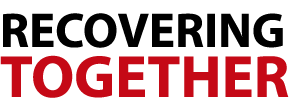During disaster recovery, libraries should engage in routines, rituals and activities that encourage healing among staff and volunteers.

Support should be offered not only to those who are personally affected, but to everyone who works in disaster recovery, said several NLS library leaders. “Whether you are affected by the fire or not, you are traumatized,” said Susie Serrano, Chico branch manager, reflecting on her experience following the 2018 Camp fire.
Activities such as daily check-ins, counseling sessions and dedicated time for peer support can help staff manage stress. These supports are especially important as community members return to the library, eager to share their disaster experiences. By hearing stories day in and day out, frontline staff may suffer from vicarious trauma and compassion fatigue.
Following the 2017 Northern California wildfires, Sonoma County Library staff experienced these challenges firsthand.
“Public service staff dealt with both their own losses and the losses of their community,” said Rocío Linares, circulation clerk for the Northwest Regional Library branch of the Sonoma County Library. “Patrons came to us, full of grief and pain, to tell us about their loss and the loss of their library checkouts, and seeing so many patrons come in to tell us, all day, every day, for weeks, was devastating.”
“I am very grateful for the support we staff were given during this time,” said Linares, “but I still wish there had been some resources on how to deal with the amount of pain we faced every day following the fires.”
Based on their experiences in 2017, Sonoma County Library leaders expanded mental health trainings for all staff during 2018 and 2019, including mental health first aid trainings, delivered in partnership with the county health department. Today, roughly three quarters of Sonoma County staff have been trained, including those who work in circulation, maintenance and library administration.
Participating in the trainings helped staff to more effectively support patrons and peers when the Kincade Fire struck Sonoma County in 2019, staff members said.
Promoting healing
According to staff members in Sonoma, Butte and Napa counties, it is essential that libraries create internal spaces for openness and sharing during the recovery phase. Staff and volunteers need opportunities to talk about how they are doing and to align specific assignments to match staff member’s own healing needs.
People need to look out for each other and recognize when someone needs a break, said Mel Lightbody, Butte County Librarian. For example, it might not be appropriate for staff to “be working at the desk out in front for so many hours in a row.”
Compassionate leadership from branch managers and library directors is especially important, according to those who participated in the 2019 NLS Recovery Together survey.
“Because our staff were so supported, we were able to pass on this strength and compassion to our community members,” said Courtney Klein, a librarian with Sonoma County’s Sebastopol Regional Library. Still, many library staff members have expressed a need for additional training.
Disaster training needs
“We were traumatized people dealing with traumatized people” said one librarian. “Maybe it would’ve been different if we had already been trained in community trauma, community coping mechanisms. Knowing the signs might have been helpful.”
It’s also vital to establish a community that promotes peer support, said staff in Butte, Napa and Tehama counties. “If people are already comfortable sharing and being open with each other, they will be more supportive during a disaster,” said one NLS library director.
Even still, the demands of disaster recovery are likely to take a toll.
After the Camp Fire, “we put off the self-care process for a long time, but we recognized the burn out,” said Lightbody. “How can we help staff learn how to recognize co-worker needs, to advocate for each other?”
Part of healing also means moving at a pace that’s appropriate for staff and volunteers, said Lightbody. Even after a major disaster, libraries may face external pressure to reopen or to restart certain programs. Some people had this idea that “‘it’s been six months, you guys should have it together by now,’” Lightbody said. “But we are still dealing with traumatized people.”
To support healing internally, libraries can:
- Hold daily check-ins for staff and volunteers; encourage people to share how they are feeling across multiple domains (physically, intellectually, emotionally, socially and spiritually)
- Promote a buddy system, where staff and volunteers help recognize when another team member needs additional support
- Host guest speakers or counselors who can help staff manage the emotional toll of recovery
Tools & Resources
- Recognize the signs and symptoms of vicarious trauma and compassion fatigue with this guide from Alameda County. The page also includes links to additional resources.
- The Department of Justice also offers a vicarious trauma toolkit that includes extensive resources and an introductory video on strategies for “Creating a Vicarious Trauma-Informed Organization.”
